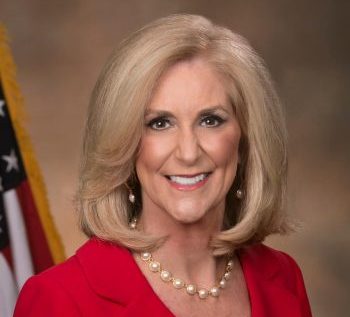
Attorney General Lynn Fitch
The COVID-19 pandemic has revealed to many Americans just how vulnerable our seniors are – not just in a medical sense, but also mentally and emotionally. With families having to keep their distance from their parents, grandparents, and other elderly loved ones, bad actors have been moving in to take advantage of seniors left isolated and without their typical support system.
Many of the COVID-related scams prey on “high-risk” seniors’ anxiety over the public health crisis to execute fear-driven schemes. They include scams that range from peddling expensive and fake Coronavirus cures to scaring seniors into thinking their grandchildren are in dire need of immediate financial assistance. According to the Federal Trade Commission’s (FTC) COVID-19 and stimulus reports, Mississippi has reported $882,000 in total fraud loss over 1,002 reports.
Unfortunately, senior-focused scams may have found a new angle with the pandemic, but they are nothing new. The FTC’s Consumer Sentinel, released in January of this year, disclosed that in 2019 alone 3.2 million people reported problems they experienced in the marketplace, and fraud accounted for 53 percent of those problems. Of the 1.7 million reports of fraud in the U.S., more than $1.9 billion dollars was reported to be lost to fraudulent activity. That’s an increase of $293 million over what was reported in 2018.
People aged 70-79 account for 13 percent of those reporting lost money, and those 80 years old and older account for 11 percent. However, when people aged 70 and older did report a loss, they reported median losses higher than any other age group. What’s worse, for many older victims of financial exploitation, their losses are nearly impossible to recover.
This abuse can be perpetrated by a wide range of bad actors including those that seniors love and trust most, such as fiduciaries, financial advisers, caregivers, and even family members. Seniors can be appealing targets because they often receive a regular income from Social Security or a pension, have spent a lifetime saving for retirement, and have accumulated assets or equity in their home.
If you are a senior, or if you are someone who wants to protect a senior from fraud, there are steps you can take. For instance, never buy anything from a company that you are not familiar with until you have a chance to check them out with the Better Business Bureau or other trusted source. And, if someone tries to get you to buy something on the spot, let them know you will make up your mind when you see it in writing and have time to review it.
If you can use direct deposit for benefits or pension checks, it is safer than getting them through the mail. In Mississippi, we also have a new law that gives financial institutions the ability to be a good partner in protecting seniors against financial fraud, as well. They now have the ability to delay the completion of a transaction if they have a good faith belief that it may be the result of or it may result in fraud against a senior. Sometimes a little time is all that is needed to keep a senior from losing their life savings.
The Mississippi Attorney General’s Office is working with federal, state, and local partners to protect our most vulnerable, but it will take us all working together. If you see a problem, report it. Please contact the Mississippi Attorney General’s Consumer Protection Hotline at 1-800-281-4418 or consumer@ago.ms.gov.
For suspected COVID-19 fraud, no matter the victim’s age, contact the National Center for Disaster Fraud at 1-866-720-5721. If the victim is a senior, the National Elder Fraud Hotline, which the Department of Justice launched this year, is another helpful resource at 1-833-FRAUD-11.
Together, we can find solutions to Mississippi’s greatest challenges, including protecting our family, friends, and neighbors from falling victim to fraud. We may not be able to visit with our elderly loved ones in-person the way we would like, but we can protect them just as well as ever.
###
Submitted by Mississippi Attorney General Lynn Fitch.









